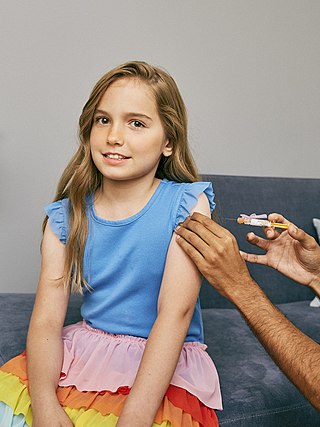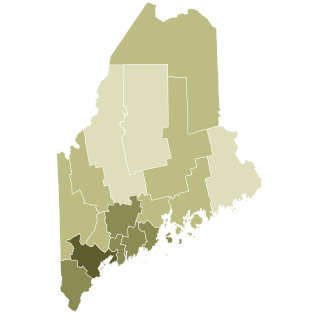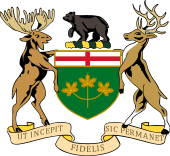
Vaccination is the administration of a vaccine to help the immune system develop immunity from a disease. Vaccines contain a microorganism or virus in a weakened, live or killed state, or proteins or toxins from the organism. In stimulating the body's adaptive immunity, they help prevent sickness from an infectious disease. When a sufficiently large percentage of a population has been vaccinated, herd immunity results. Herd immunity protects those who may be immunocompromised and cannot get a vaccine because even a weakened version would harm them. The effectiveness of vaccination has been widely studied and verified. Vaccination is the most effective method of preventing infectious diseases; widespread immunity due to vaccination is largely responsible for the worldwide eradication of smallpox and the elimination of diseases such as polio and tetanus from much of the world. However, some diseases, such as measles outbreaks in America, have seen rising cases due to relatively low vaccination rates in the 2010s – attributed, in part, to vaccine hesitancy. According to the World Health Organization, vaccination prevents 3.5–5 million deaths per year.

Vaccine hesitancy is a delay in acceptance, or refusal, of vaccines despite the availability of vaccine services and supporting evidence. The term covers refusals to vaccinate, delaying vaccines, accepting vaccines but remaining uncertain about their use, or using certain vaccines but not others. The scientific consensus that vaccines are generally safe and effective is overwhelming. Vaccine hesitancy often results in disease outbreaks and deaths from vaccine-preventable diseases. Therefore, the World Health Organization characterizes vaccine hesitancy as one of the top ten global health threats.

A vaccination schedule is a series of vaccinations, including the timing of all doses, which may be either recommended or compulsory, depending on the country of residence. A vaccine is an antigenic preparation used to produce active immunity to a disease, in order to prevent or reduce the effects of infection by any natural or "wild" pathogen. Vaccines go through multiple phases of trials to ensure safety and effectiveness.
Vaccination and religion have interrelations of varying kinds. No major religion prohibits vaccinations, and some consider it an obligation because of the potential to save lives. However, some people cite religious adherence as a basis for opting to forego vaccinating themselves or their children. Many such objections are pretextual: in Australia, anti-vaccinationists founded the Church of Conscious Living, a "fake church", leading to religious exemptions being removed in that country, and one US pastor was reported to offer vaccine exemptions in exchange for online membership of his church.
A vaccination policy is a health policy adopted in order to prevent the spread of infectious disease. These policies are generally put into place by State or local governments, but may also be set by private facilities, such as workplaces or schools. Many policies have been developed and implemented since vaccines were first made widely available.

Health may refer to "a state of complete physical, mental and social well-being and not merely the absence of disease and infirmity.", according to the World Health Organization (WHO). 78.7 was the average life expectancy for individuals at birth in 2017. The highest cause of death for United States citizens is heart disease. Infectious diseases such as sexually transmitted diseases impact the health of approximately 19 million yearly. The two most commonly reported infectious diseases include chlamydia and gonorrhea. The United States is currently challenged by the COVID-19 pandemic, and is 19th in the world in COVID-19 vaccination rates. All 50 states in the U.S. require immunizations for children in order to enroll in public school, but various exemptions are available by state. Immunizations are often compulsory for military enlistment in the United States.
California Senate Bill 277 (SB277) is a California law that removed personal belief as a reason for an exemption from the vaccination requirements for entry to private or public elementary or secondary schools in California, as well as day care centers. The final version of the bill was enacted by the California Legislature in 2015 and was signed into law by Governor Jerry Brown on June 30, 2015.

Dorit Rubinstein Reiss is a Professor of Law and the James Edgar Hervey '50 Chair of Litigation at UC Hastings College of Law. She has also worked for the Hebrew University of Jerusalem and the Israeli Ministry of Justice's Department of Public Law.
The Standing Committee on Vaccination at the Robert Koch Institute, or STIKO, is a scientific committee comprising 18 members at the Robert Koch Institute in Berlin, Germany that provides official recommendations for the vaccination schedules used by the individual German states. The committee meets twice yearly to review the latest research regarding vaccination against infectious diseases. Although the STIKO makes recommendations, immunization in Germany is voluntary and there are no official government recommendations. German Federal States typically follow the STIKO's recommendations minimally, although each state can make recommendations for their geographic jurisdiction that extends beyond the recommended list. In addition to the proposed immunization schedule for children and adults, the STIKO recommends vaccinations for occupational groups, police, travelers, and other at risk groups.
Anti-vaccinationism in chiropractic is widespread, but there are notable differences within the trade. Chiropractic is a form of alternative medicine founded on the idea that all disease is caused by disruption of the flow of "innate" in the spine, by so-called vertebral subluxations – a pseudoscientific concept. Over time chiropractic has divided into "straights" who adhere to the subluxation theory and "mixers" who adhere more closely to a reality-based view of anatomy. "Straight" chiropractors are very likely to be anti-vaccination, but all chiropractic training tends to reduce acceptance of vaccines.

Vaccine Choice Canada (VCC) is Canada's main anti-vaccination group. It was founded in the 1980s under the name Vaccination Risk Awareness Network (VRAN) and adopted its current name in 2014. The group has been contributing to vaccine hesitancy in Canada, encouraging citizens to forgo immunization and legislators to support anti-vaccine regulations and legislation.

Vaccination policy of the United States is the subset of U.S. federal health policy that deals with immunization against infectious disease. It is decided at various levels of the government, including the individual states. This policy has been developed over the approximately two centuries since the invention of vaccination with the purpose of eradicating disease from the U.S. population, or creating a herd immunity. Policies intended to encourage vaccination impact numerous areas of law, including regulation of vaccine safety, funding of vaccination programs, vaccine mandates, adverse event reporting requirements, and compensation for injuries asserted to be associated with vaccination.

2020 Maine Question 1 was a people's veto referendum that sought to reject a new law which eliminated religious and philosophical exemptions from school vaccination requirements and for employees of nursery schools and health care facilities. The question appeared on the March 3, 2020 statewide ballot.

Caviezel v. Great Neck Public Schools, 500 Fed. Appx. 16 (2012), is a decision of the United States Court of Appeals for the Second Circuit upholding the denial of a religious exemption to mandatory vaccination sought by a parent who claimed to adhere to a non-denominational religious view without a formal doctrine.

COVID-19 vaccination in Canada is an ongoing, intergovernmental effort coordinated between the bodies responsible in the Government of Canada to acquire and distribute vaccines to individual provincial and territorial governments who in turn administer authorized COVID-19 vaccines during the COVID-19 pandemic in Canada. Provinces have worked with local municipal governments, hospital systems, family doctors and independently owned pharmacies to aid in part, or in full with vaccination rollout. The vaccination effort in full is the largest such immunization effort in the nation's history. The vaccination effort began December 14, 2020, and is currently ongoing.
Dr. Shelley Deeks, MD, MHSc, FRCPC, FFAFPM, is a Canadian public health expert who is the chair of the National Advisory Committee on Immunization. Her advertised "specialities include communicable disease control, outbreak investigations, vaccine safety, epidemiology and program evaluation." She is a fellow of the Royal College of Physicians of Canada and the Australian Faculty of Public Health Medicine. Deeks was the executive lead in Ontario's COVID-19 pandemic response in 2020 in her role at Public Health Ontario.
The COVID-19 vaccination campaign in Quebec is an ongoing provincial effort to distribute and administer vaccines against COVID-19.
COVID-19 vaccination in Ontario began in December 2020, when the first doses of the Pfizer vaccine were administered. In February 2021, shipments for both the Pfizer and Moderna vaccines increased significantly. By May 2021, over 50 percent of Ontarians had received their first dose. By the beginning of 2022, over 80 percent of Ontarians had received their first dose.
COVID-19 vaccination mandates in Canada are the responsibility of provinces, territories, and municipalities, and in the case of federal public services and federally-regulated transportation industries, the federal government. COVID-19 vaccines are free in Canada through the public health care system. The federal government is responsible for procurement and distribution of the vaccines to provincial and territorial authorities; provincial and territorial governments are responsible for administering vaccinations to people in their respective jurisdictions. Mass vaccination efforts began across Canada on December 14, 2020. As the second vaccinations became more widely available in June 2021, Manitoba became the first province in Canada to offer a voluntary vaccine passport.
A religious exemption is a legal privilege that exempts members of a certain religion from a law, regulation, or requirement. Religious exemptions are often justified as a protection of religious freedom, and proponents of religious exemptions argue that complying with a law against one's faith is a greater harm than complying against a law that one otherwise disagrees with due to a fear of divine judgment. Opponents of religious exemptions argue that they mandate unequal treatment and undermine the rule of law.










